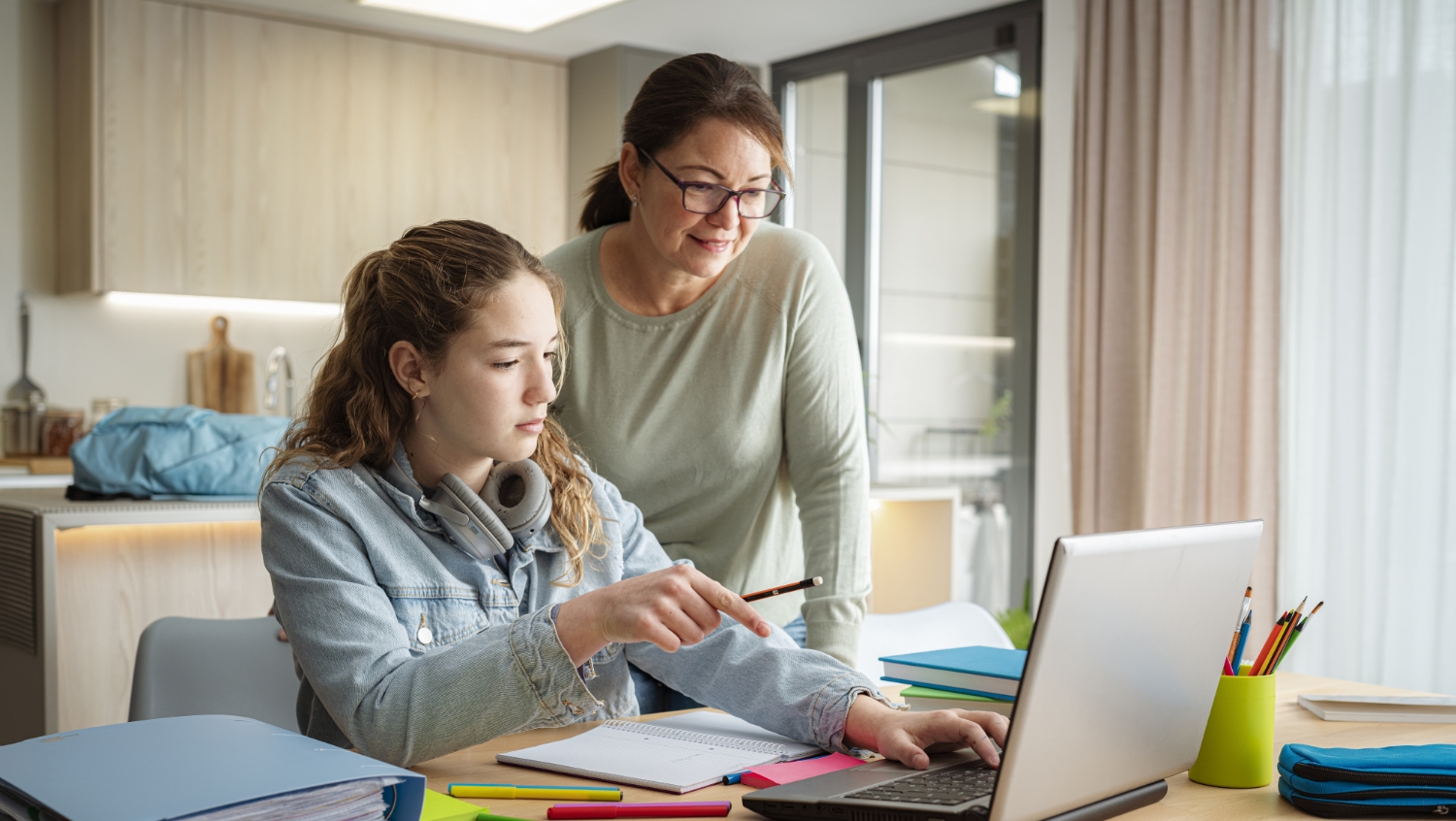Meet Malcolm, our award-winning leader of learning for science
Malcolm Iles is a leader of learning for science at Academy21. In 2022, thanks to his dedication to improving the lives of his students, he was awarded Inspired’s prestigious Online School Award! But the impact on students’ life isn’t achieved in one day – every school day is an opportunity to inspire students and reengage them with education. So, we asked Malcom for his insight into his role and to reflect on the transformative power of online learning.
Could you please tell us about your role at Academy21 and how your subject area interacts with the wider school system?
My role at Academy 21 is leader of learning – I prepare and deliver lessons designed to help students progress with their education. Academy21 is an alternate learning provider for pupils who can’t access traditional education facilities for different reasons, including illness, physical disability, anxiety, developmental disorders such as autism spectrum disorder, and because they can’t meet the behaviour standards of traditional schools.
For this reason, Academy21 learning goes beyond imparting knowledge and passing exams; instead, it is about encouraging and motivating students to engage with learning.
My subject area is Science but within Academy21 this is relatively unimportant, as all staff are first and foremost teachers of young people before teachers of their subject.
Students are assessed on interaction, understanding and effort for each lesson they attend. We believe the interaction is just as important as the understanding, as this is crucial for students to thrive and re-enter the classroom.
What does it mean to you to be part of the Inspired community?
I certainly agree with Inspired’s philosophy of developing ‘a love of learning, confidence and a firm value system that enables them to embrace the challenges life throws at them in their future endeavours.’ I believe education is about so much more than passing exams. We change lives and that’s what I focus on.
I am really interested in Inspired’s aim to integrate our experience of delivering alternative provision to the needs of the pupils inside the wider family of schools, while maintaining our leading provision with state schools and local authorities. We have a lot to learn from working with other schools and I look forward to starting this journey.
What would you say to other education professionals who want to excel in orchestrating learning?
I really enjoy my work. This joy motivates me. Of course, my students also help me become the best educator I can be. I’ve been working in teaching for a long time, so my tips would be:
First, no teacher is an island. Working and learning from colleagues is essential, and the day you think you know everything is the day you will stop doing your best for your students. The strength of any school is how colleagues work and support each other.
Second, always remember to put the students first. It’s too easy to get swept up with initiatives and new teaching strategies and forget to evaluate them through the lens of whether they are working for the student.
Have you faced challenges over the past year and if so, how did you overcome them?
All teachers faced many challenges over the past few years and the many physical complications and emotional difficulties the pandemic caused. The biggest problem we faced was making sure we had the evidence in place for the Teacher Assessed Grades. This was especially difficult in the online alternative provision setting where pupil motivation and attendance can be very inconsistent.
Working as part of a team helped us overcame these difficulties, as the leaders of learning shared information about pupils and supported each other, and the management and business support staff at the Head Office liaised with the schools and local education authorities. Our ability to come together helped everyone overcome the anxieties and uncertainties we battled every day.
What is the best part of working in education and as a leader of learning?
The best part of any teaching job, in my opinion, is seeing a pupil make academic or emotional progress. This could take many forms, including a pupil suddenly understanding a concept in Science, seeing a student who had a very low school attendance rate slowly gain the confidence to join classes again, or a pupil with autism interacting with you regularly when you know they would never do so in a regular classroom. We experience these moments weekly at Academy21, which makes my work so rewarding.
What is the most difficult part of your role and how do you rise to the challenge?
I was a teacher in a physical classroom for 30 years prior to my role at Academy 21. So, the most difficult part of my role at Academy21 is keeping up with and having time to master the latest online tools and innovations in this very quickly developing part of the education and edtech sector.
The Level 4 Teaching online course, provided by Inspired, helps me overcome my anxiety about keeping up with technology. This course gave me the time I needed to interact with online resources, so I feel confident using them in class. It also helped me track the progress of students much easier online, which helps to personalise education and ensure everyone is getting the education they need.
Can you talk us through your vision for the future of learning?
Learning will become more blended, with online activities being offered as part of traditional face-to-face classroom learning. Teachers will increasingly become more akin to facilitators of personalised learning, rather than controlling the learning of the whole class. The role of personal devices will also become more relevant, with assessment for learning being instantaneous through the use of polls and quizzes.
Traditional schools might out-source learning to more specialised external providers, like Academy21, and online schools might gain a lot from collaborating with physical schools for lab work or field trips.
Education will be improved through personal technological devices which can help normalise learning and widen accessibility. I use videos in the classroom now, which helps to tap into the rise of video learning.



